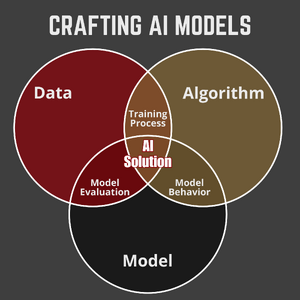AI Models
From MDS Wiki
(Redirected from Model)

In artificial intelligence (AI), a model is a mathematical representation or algorithm that is trained on data to make predictions or decisions without being explicitly programmed to perform the task. Here are some key points about AI models:
- Training Data: AI models learn from data. The quality and quantity of this data can significantly affect the model's performance.
- Algorithms: The model uses algorithms to process the data and identify patterns or relationships. Common types of algorithms include decision trees, neural networks, and support vector machines.
- Learning: There are different types of learning in AI, including supervised learning (where the model is trained on labeled data), unsupervised learning (where the model finds patterns in unlabeled data), and reinforcement learning (where the model learns by receiving rewards or penalties for actions taken).
- Inference: Once trained, the model can make predictions or decisions based on new, unseen data. This process is called inference.
- Evaluation: The model's performance is evaluated using various metrics, such as accuracy, precision, recall, and F1 score, to determine how well it generalizes to new data.
- Types of Models: There are various types of AI models, such as regression models (for predicting continuous values), classification models (for categorizing data), and generative models (for creating new data instances).
In summary, an AI model is a core component in AI systems that enables machines to learn from data and make intelligent decisions or predictions.
